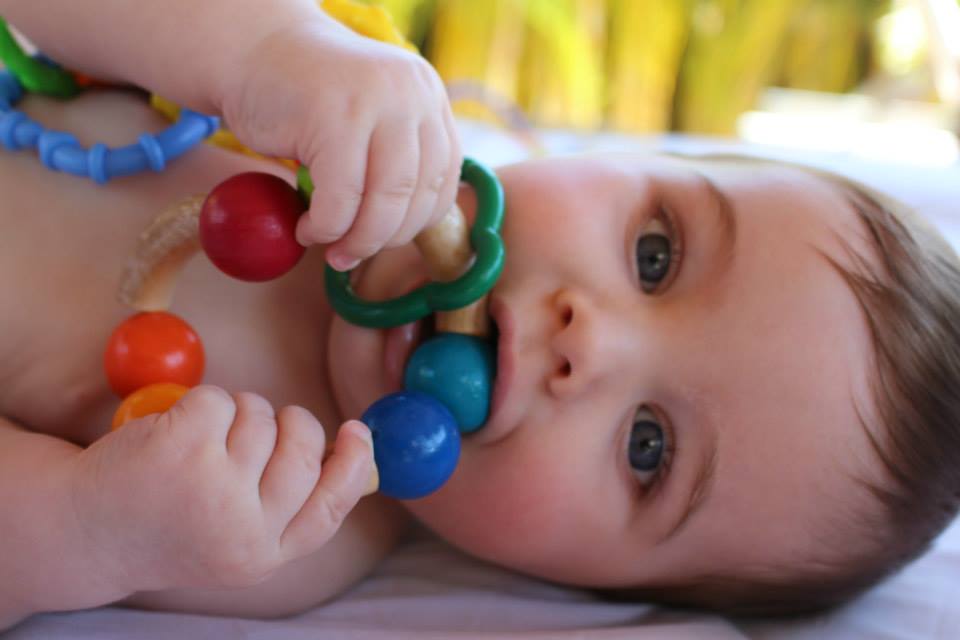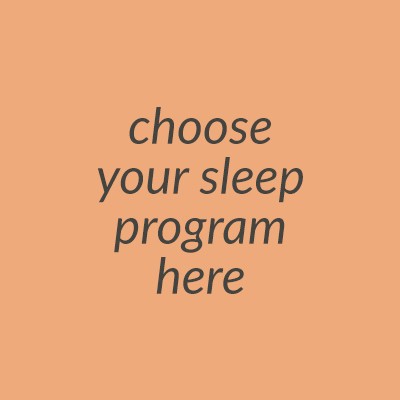One of the most common questions I get asked is “when can we sleep train our little one ? “ While there is a fairly easy answer to this, there are also many other factors to consider.
We typically recommend that baby is atleast 4 months of age (16-18 weeks being ideal) . There are a few reasons for this but the main one is that it is not until this age that baby’s circadian rhythms (their internal clock) are developed enough for them to manage a clock based schedule and more consolidated sleep. When we say 4 months of age this means their corrected age or age according to baby’s expected due date. If baby was born prematurely then we recommend waiting until their corrected age is at least 16 to 18 weeks.
Sign Up For Our Newsletter
While everyone is eager to get baby sleeping through the night, which often means we ourselves are also sleeping through the night. There are some things to consider though so that both you and baby are ready to be successful with this transition. You want to make sure that you are both ready for the commitment, consistency and time it takes to get baby on a clock based schedule.
Look at Baby’s Feeding and talk to your Family Doctor
Before sleep training we recommend looking at baby’s feeding schedule. How long they are going between feeds, and what is their current weight ? We want to ensure baby is gaining weight and that there are no feeding concerns that may affect baby’s ability to sleep longer stretches and have their needs met. Prior to sleep training we recommend asking your Doctor for their opinion on it, as well as discussing how many (if any) night feeds baby may need. Discussing this with your doctor and getting their thoughts on sleep training and cutting night feeds can often give you the information and confidence needed to make a better decision around sleep training and when to start.
What do you know about sleep training ?
Often when families think of sleep training, they think of a CIO type method where baby is put to bed and left to cry or settle on their own. Sleep training is so much more then just a method. When we work with families we discuss some key factors that are critical to help sleep training come together and be successful. First is developing a clock based schedule with those optimal times for baby’s age. This helps to get them not only the sleep they need but at the times that are most optimal for them. Sleep training isn’t just training baby to sleep through the night. It is helping them to get the daytime sleep they need through consolidated naps so they are better rested and ready to accept sleep through the night.
Second we look at the sleep environment, where is baby napping and sleeping both during the day and at night ? Is baby having the stationary sleep in a crib or is baby napping on the go ? Is the environment conducive to sleep ? Are we using black out blinds, white noise and a cool environment ?
Finally we look at the method. Here is it critical to understand the different methods as well as your own comfort level with each of them. Understanding this, as well as baby’s temperament, will help you to choose one that works for YOUR family. Here is where I really stress your own comfort and confidence in the method you choose. CONSISTENCY is everything in helping baby’s sleep come together. So when you are comfortable and confident in your method you are more likely to be consistent and support baby to learn how to sleep more independently.
Now that you have the information, Are You ready ?
The key to sleep training is being ready, having the support of your partner and family and having a plan in mind. Those first few days of sleep training can be challenging, so having support whether it’s from family or from a sleep consultant is key.
You really want to be on the same page as your partner so you are both able to be consistent and respond the same way during this process. This makes it easier not only for yourselves but also for baby who gets a clear and consistent message each time we support them. It can take a couple weeks for baby’s new schedule and sleep routines to come together. It is best to choose a time that is free from travel, big changes or events so that you are best able to follow your schedule and routine for baby.
Looking for extra support? Schedule a free 15 minute consultation to learn more about how we can help support your family on the journey to healthy sleep.






